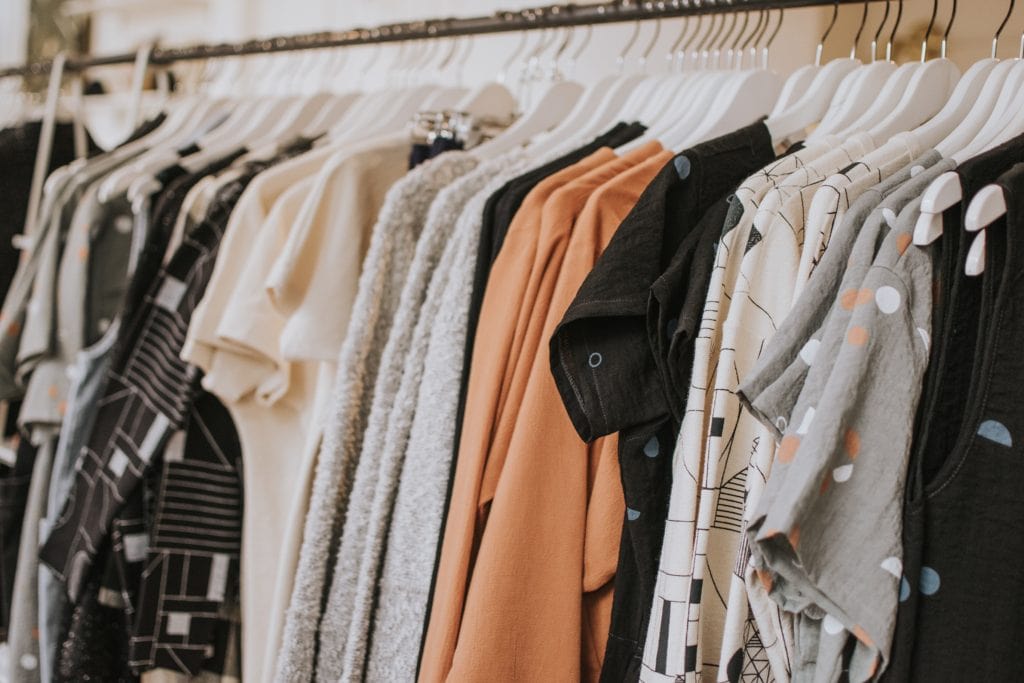Are recycled textiles the future of fashion?
By Pelican Consultant Emma Scott.
The fashion industry is one of the world’s biggest polluters, accounting for 10% of the world’s carbon emissions. The rise of cheap, fast fashion has resulted in ever-increasing amounts of textile waste ending up in landfill, and the manufacturing processes can be incredibly harmful to the environment.
But the public has never been more aware of environmental issues and clothing retailers are responding by using (and of course promoting their use of) eco-friendly textiles.
This is not the niche market it once was – eco-fashion has gone mainstream. At this year’s London Fashion Week every collection included at least a nod to sustainability. Fashion East’s Gareth Wightman turned used make-up wipes into a top, while big name brands showcased capsule collections of organic cotton tees.
It seems unlikely the average consumer will start wearing their discarded make-up wipes any time soon, but fashion – both high end and high street – does seem like an effective way communicate messages about sustainability.
And the message about the impact the clothing industry has on the environment would shock even the most dedicated fashionista.
Buying clothes is probably the most common way we all contribute to water pollution and environmental degradation around the world, yet it may be the least well-known in terms of it being a major polluting issue.
This could be because manufacturing often takes place on other continents, so the far-reaching implications of the pollution created in textile manufacturing are out of sight and mind.
But when the chemicals used in the process get into rivers, and these rivers are used to irrigate farms, chemicals inevitably find their way into the food chain.
Despite this, persuading consumers to change their shopping habits is a tricky business. But as we’ve seen in the food industry, it’s not impossible.
Through effective marketing campaigns we’ve seen a shift towards people buying free-range eggs and farm-assured meats. The year after Hugh Fearnley-Whittingstall’s Chicken Out campaign, shoppers bought 46% more higher-welfare chicken.
Judging by the increasing number of high street clothing brands committing to become ethical retailers, it can be assumed their customers are becoming aware of the impact their fashion choices have. We’re now seeing shoppers actively seeking out eco-friendly fabrics in the same way they look for Fairtrade ingredients.
H&M is an example of how high street clothes retailers are striving to be eco-conscious, with the group’s sustainability message forming a key part of its overall marketing strategy. Its Conscious Exclusive range uses recycled and organic material and, in an effort to reduce the number of clothes ending up in landfill, (it’s estimated £140 million worth of clothing goes into landfill each year) garment collection boxes have been installed in many branches.
Customers can drop off unwanted textiles in return for a voucher. They are then collected and sorted to be re-worn, reused or recycled.
Sportswear brands are also recognising the importance of an eco-friendly image. It was reported that in 2017 Adidas sold one million pairs of trainers made from plastic found in the ocean.
Some brands are taking a further step, applying innovative techniques to the manufacturing process.
Italy’s Italdenim uses crushed shellfish exoskeletons, a food industry by-product, as a fixing agent for jeans in place of chemicals, while in Spain, Jeanologia is eliminating chemicals to create distressed look jeans by using lasers and air instead.
And it’s not just fashion brands getting in on the act. Belgian cleaning products brand Ecover recently launched its ‘Laundry against landfill’ campaign, calling for us to ‘fall back in love with the clothes we already own. Caring for them better so we can wear them for longer and then give them a second life’.
According to Waste & Resources Action Programme (WRAP), extending the life of clothes by just nine extra months of active use would reduce carbon, water and waste footprints by around 20-30% each.
It seems feeling good about looking good has never been easier.
Pelican Communications is a specialist in the environment & CSR, food, packaging & logistics and trade association sectors and offers a range of services such as strategy, design, content creation, public relations and people development. Contact us for marketing and communications expertise.
